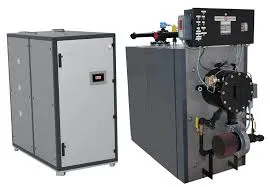Th9 . 04, 2024 14:16 Back to list
cast iron castings manufacturers
The Role of Cast Iron Castings Manufacturers in Modern Industry
Cast iron has been a cornerstone material in various industries, thanks to its unique characteristics such as high durability, excellent wear resistance, and good castability. Cast iron castings manufacturers play a vital role in the production of a wide range of components used in everything from automotive to construction, and their contributions are essential for the functionality and efficiency of many products.
Understanding Cast Iron
Cast iron is an alloy of iron, carbon, and silicon, and it comes in various types, each with its own properties and applications. The most common forms include gray cast iron, ductile cast iron, and white cast iron. Gray cast iron is known for its excellent machinability and good damping capacity, making it perfect for engine blocks and machine tools. Ductile cast iron, with its enhanced tensile strength and ductility, is often used in critical applications such as pipelines and heavy machinery. White cast iron, while hard and brittle, finds its niche in wear-resistant applications.
The Manufacturing Process
The manufacturing of cast iron castings involves several critical steps, including pattern making, melting, pouring, and finishing. The process begins with creating a pattern that accurately represents the final product. Once the pattern is ready, molten iron is poured into molds to form the desired shape. After cooling and solidifying, the castings typically undergo various finishing processes such as machining, grinding, and surface treatment to achieve the required precision and surface quality.
Importance of Quality Control
cast iron castings manufacturers

Quality control is paramount in the production of cast iron castings. Manufacturers employ various testing methods, including metallurgical analysis and non-destructive testing, to ensure that each batch of castings meets industry standards. This rigorous quality assurance process not only enhances the performance and reliability of the end products but also helps manufacturers maintain a competitive edge in the market.
Innovations in Casting Technologies
The cast iron casting industry continues to evolve with technological advancements. Innovative techniques such as 3D printing for prototypes, computer-aided design (CAD), and simulation software are transforming how castings are produced. These technologies enable manufacturers to reduce lead times, minimize waste, and create complex geometries that were previously difficult or impossible to achieve.
Environmental Considerations
With increasing awareness of environmental issues, cast iron castings manufacturers are also focusing on sustainable practices. This includes recycling scrap metal, reducing energy consumption during production, and minimizing waste. By adopting green manufacturing processes, companies not only contribute to environmental protection but also appeal to a growing market of eco-conscious consumers and businesses.
Conclusion
In conclusion, cast iron castings manufacturers are integral to modern manufacturing and play a substantial role across various industries. Their expertise in producing high-quality castings, commitment to innovation, and focus on sustainability will continue to shape the future of manufacturing. As industries demand more complex and durable parts, the significance of these manufacturers will only increase, underscoring the vital role of cast iron in contemporary production processes. As we move forward, collaboration between manufacturers, designers, and researchers will be key to unlocking new possibilities in cast iron applications, ensuring that this age-old material remains relevant in the fast-paced world of technology and industry.
-
Centrifugally Cast Iron Water Main Pipe | Ductile Iron Solutions
NewsAug.24,2025
-
Durable Cast Steel Concrete Pipe Mold Bottom Rings & Base Trays
NewsAug.23,2025
-
Centrifugally Cast Iron Water Main Pipe for Reliable Mains
NewsAug.22,2025
-
Durable Centrifugally Cast Iron Water Main Pipe
NewsAug.11,2025
-
Centrifugally Cast Iron Water Main Pipes for Reliability
NewsAug.10,2025
-
High-Quality Centrifugally Cast Iron Water Main Pipes
NewsAug.09,2025


